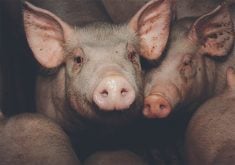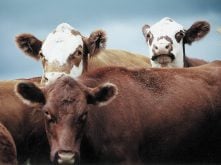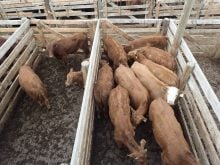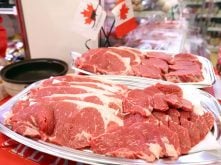After nearly 11 months of disastrous beef markets because of limited trade with the United States, thousands of Canadian producers are literally betting the farm on the border opening later this year.
Some American producers want a lengthy closure to guard against further BSE cases appearing in their country since Canadian cattle were banned last May 20.
“One of the misconceptions that they have is that we have a very large industry and a big backlog,” said Brad Wildeman, a Saskatchewan feedlot operator and chair of the Canadian Cattlemen’s Association foreign trade committee.
Read Also
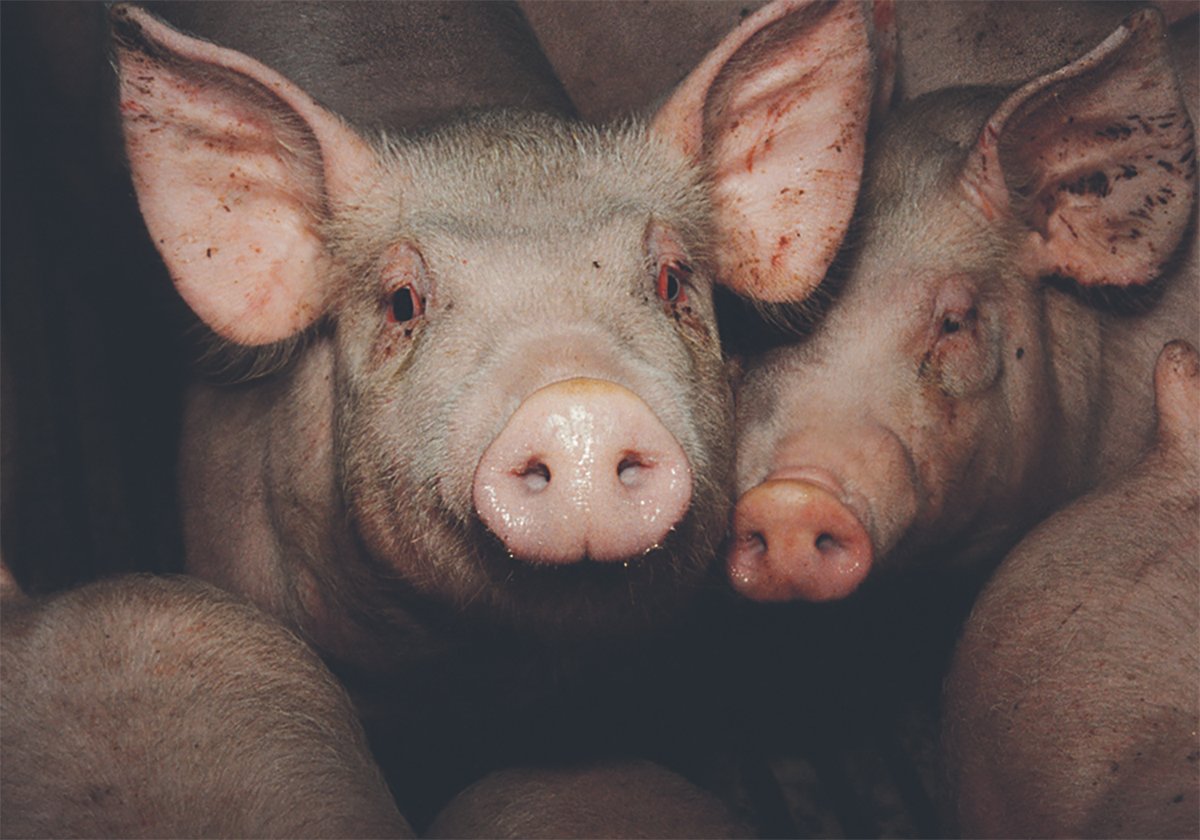
The Western Producer Livestock Report – October 30, 2025
Western Producer Livestock Report for October 30, 2025. See U.S. & Canadian hog prices, Canadian bison & lamb market data and sales insights.
However, Canadian cattle-on-feed numbers do not indicate there are large numbers of finished cattle ready to move if the border opens this summer.
“We probably wouldn’t see any imports of finished cattle well into July,” he said.
Like many Canadian industry leaders he is confident the border will reopen soon. More American buyers are actively bidding and placing cattle in Canadian feedlots.
“There are groups that are opposed to trade with Canada but the mainstream organizations are pretty supportive based on science, so we don’t see anything that should get in the way,” Wildeman said.
The wide range of comments must be evaluated since the U.S. Department of Agriculture closed its comment period on April 7. Over the next month it will write a new rule on ending the ban on live animals and opening an expanded meat market to Canada and other BSE minimal risk nations.
The nearly 1,000 comments reveal divergent opinions. Grassroots producers who submitted comments are opposed to resuming normal cattle trade while industry groups favour open trade. The comments were posted on the USDA website.
The Idaho Livestock Auction Association said the two infected animals came from Canada so trade should not start again.
“Until all our export markets are restored, the importation of foreign products should be curtailed or stopped.”
The association called for more stringent regulations on animal feed safety and animal health import laws.
“Until we have a better system for identifying and tracking foreign livestock in place we should only maintain the current status quo, if not curtailing it,” said the association.
On the other hand, the North American Meat Processors Association and the American Meat Institute said it is important to re-establish full trade with Canada in cattle, beef and beef products as an example to foreign trading partners. Under guidelines of the OIE (world animal health organization), cattle and beef trade between the United States and Canada is permitted because of the low level of infection.
“Indeed, the existing limitations on Canadian beef imports to the United States are without foundation in science as is the continuing prohibition on cattle imports,” said the institute.
For those making a living on the land, renewing trade produces measurable economic impacts, said the Kansas Cattlemen’s Association, representing about 1,500 producers.
“Cash cattle hit record high prices and ag related businesses and rural communities were gaining in profitability. This was a direct result to eliminating the free trade of live cattle and boxed beef imports from Canada,” it said.
The association wants the prohibition to continue, as does Montana producer and auction owner Pat Goggins.
“It is a matter of national defence, economic security, food safety, and the sustainability of agriculture in this country,” he wrote.



